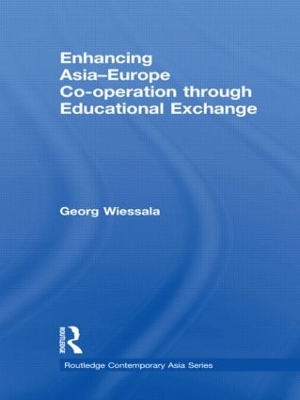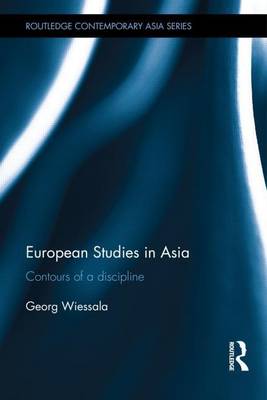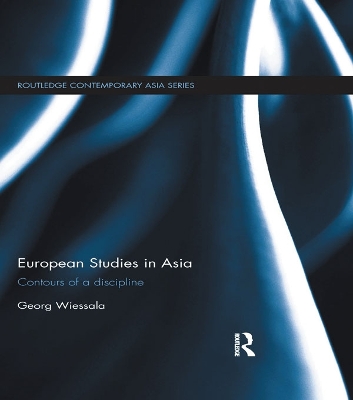Routledge Contemporary Asia
3 total works
Enhancing Asia-Europe Co-operation through Educational Exchange
by Georg Wiessala
This book examines the ideas of knowledge-transfer and higher education exchange in the relationship between the European Union and countries, regions, universities and think-tanks across Asia. It critically investigates some discourses of particular relevance to the cognitive framework of the academic discipline of ‘European Studies’, as currently taught across a number of countries in the Asia Pacific. For this purpose, this book presents a range of theoretical explanations, drawn from notions such as the global knowledge village, intercultural dialogue, regional integration, foreign policy analysis and international education. The author offers a unique, in-depth, investigation of a range of EU policies and agendas towards Asia, scrutinizing a number of contemporary centers, curricula and exchange initiatives in the field of European Studies in Asia, and analyzing over-arching themes, such as human rights and further sheds light on the long history of the exchange of ideas and knowledge between East and West, surveying the function of educational and intellectual exchange as a developing foreign policy tool of the European Union in Asia.
This book is essential reading for anyone interested in the relation between Europe and Asia, within Politics, International Relations, Asia-Pacific Studies, European Studies, Education, Law and Human Rights.
Dr Georg Wiessala is a Professor of International Relations at the University of Central Lancashire in Preston, UK.
As countries across Asia continue to rise and become more assertive global powers, the role that Higher Education has played, and continues to play, in this process is an issue of growing pertinence. Furthermore, understanding the relationship between Europe and Asia fostered by historical and contemporary knowledge transfer, including Higher Education, is crucial to analysing and encouraging the progress of both regional integration and inter-regional cooperation.
With a specific focus on international Higher Education, European Studies in Asia investigates knowledge transfer and channels of learning between Europe and Asia from historical, contemporary and teaching perspectives. The book examines a selection of significant historical precedents of intellectual dialogue between the two regions and, in turn, explores contemporary cross-regional discourses both inside and outside of the official frameworks of the European Union (EU) and the Asia--Europe Meetings (ASEM). Drawing on extensive case studies based on many of his own teaching experiences, Georg Wiessala addresses key questions, such as the nature and construction of the European Studies in Asia curriculum; aspects of 'values', co-constructed learning and adult pedagogy in the discipline of European Studies in Asia; the politics of Asian host cultures, the 'internationalization' of Asian Higher Education and the experiences and expectations of tertiary sector students of this subject in Asia, Australia and New Zealand. In doing so, the author articulates a range of outcomes for the further development of Higher Education cooperation agendas between Asia and Europe, in the discipline of European Studies, and in related fields such as International Relations.
This case study-led book makes an original and novel contribution to our understanding of European Studies in Asia. As such, it will be of great interest to students and scholars of Asian Education, Comparative Education, European Studies and International Relations.


